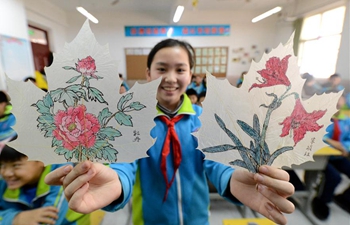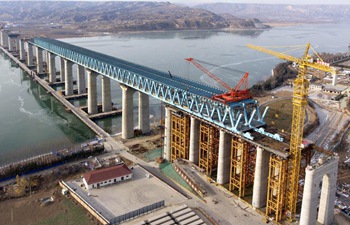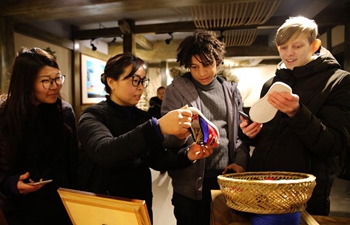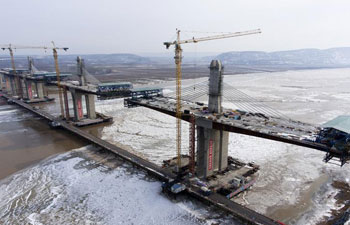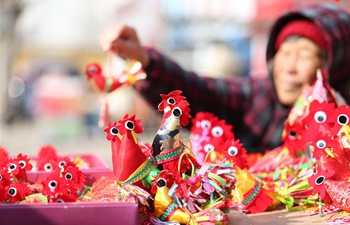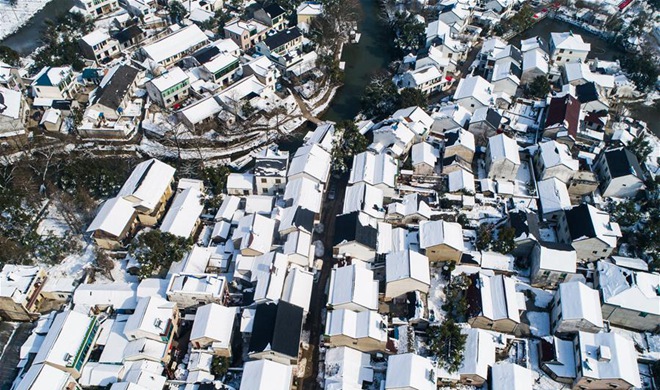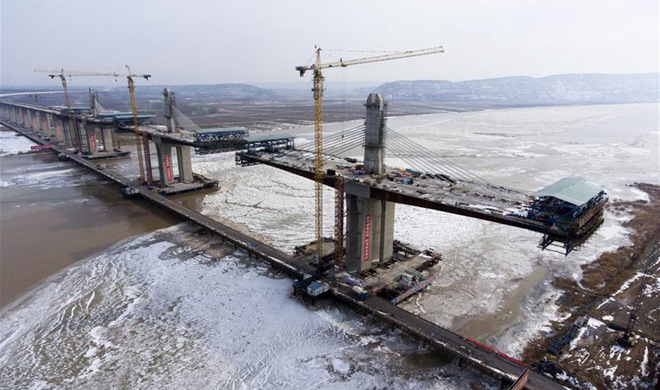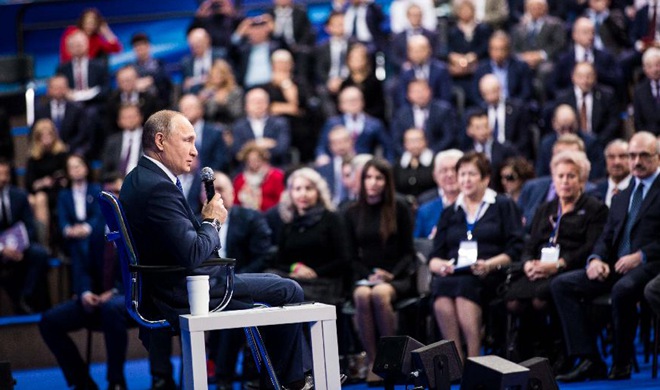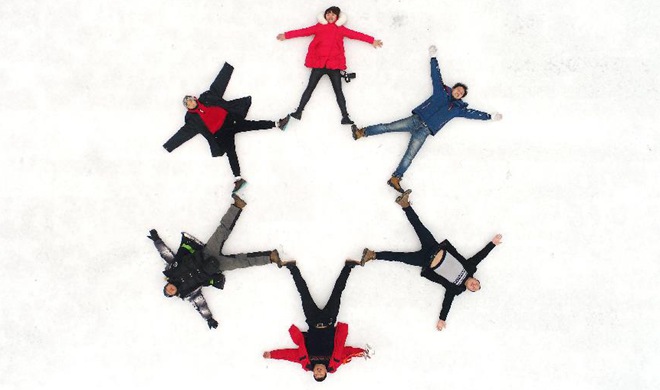NAIROBI, Jan. 30 (Xinhua) -- Kenyans on Tuesday relied on social media for updates on the swearing-in of opposition leader Raila Odinga as the People's President in the capital of Nairobi after the government switched off mainstream TV stations.
Social media platforms that include Facebook, Twitter and YouTube became the only channels that anxious citizens could access the information on the event.
Odinga took oath as the people's president, a move that the government had termed illegal.
Initially, there were fears of chaos due to confrontation between the police and opposition supporters after the government banned the event.
However, police officers who had been sent to man Uhuru Park, the venue of the ceremony, withdrew allowing thousands of opposition National Super Alliance (NASA) supporters to attend the fete.
But the government, through the Communication Authority of Kenya (CA), switched off several mainstream TV stations, plunging millions of people hungry for information into darkness. The popular TV stations switched off included Citizen, NTV and KTN News.
Social media, therefore, became the only channel where the TV and citizens posted the happenings of oath-taking ceremony. "Watch our live updates on our YouTube channels," announced NTV, Citizens and KTN News.
However, while the broadcasts ran for several minutes, the CA also switched off the channels leading to frustrations among audiences.
"I am trying to catch up with you on YouTube but I am being told the channel is not available, what is the problem?" Fred Oriko, a viewer, asked KTN News and Citizen.
The stations later turned to posting short video clips and pictures accompanied with write ups on both Facebook and Twitter to keep their audiences informed.
Among the information they passed was a telephone conversation of Odinga, the opposition leader, speaking from undisclosed location.
"Today is very historical day for the nation of Kenya. I would say the most important day since independence. We don't recognize the Oct. 26 election because 80 percent of people did not show up. Our journey to Canaan is unstoppable," Odinga told supporters, assuring them that he would take oath, which he later did at about 3 p.m. local time.
Even as the media tried to circumvent the switch off, citizens too took it upon themselves to inform others of what was happening at Uhuru Park in the capital and other towns across the country as they shared messages and photos.
"The people have decided. No turning back. Today we have a new president," Twitted Abisai, a NASA supporter under the hashtag #NASAOathDay, with photos of Odinga taking oath at Uhuru Park.
"It is an oath. It is an oath. It is an oath," Dikembe, a NASA supporter, Tweeted the message accompanied with photos.
Jubilee supporters, similarly, used the internet to pass their messages in bid to play down the opposition event.
"The real president is in Addis Ababa with others before he jets back into the country in the afternoon," Tweeted Jubilee MP Ngunjiri Wambugu, mocking opposition supporters.
However, as internet remained abuzz with the event, there were fears that it could also be the next victim.
The government prior to last year's Aug. 8 and Oct. 26 polls had severally warned that the internet would be shut down if it becomes a threat to national security.
"They shut down radios and TV, then YouTube. Next would be internet, send your messages now but how long can you deny people freedom?" noted Gabriel Dolan, a human rights activist.
Kenya, according to the Communication Authority, had 30.6 million internet subscriptions as at the quarter ending September, the majority of whom are on mobile phone. On the other hand, there were about 5 million TV subscriptions.
However, while internet subscriptions are higher, TV reaches millions of audiences because it is free, unlike mobile, where fewer people who own smart phones can live stream events.
"Yes, TV has a bigger audience but millions today followed the event on the internet because they had no any other choice. The media shutdown is certainly bad for democracy but internet usage today has hit a historical level. When the service providers would announce the figures, they would shock us," said Bernard Mwaso, a consultant with Edell IT Solution.
Tuesday's shutdown of TV stations in Kenya is the second in about a decade, with the last seen in 2007 following a disputed election pitting Odinga and former President Mwai Kibaki.




